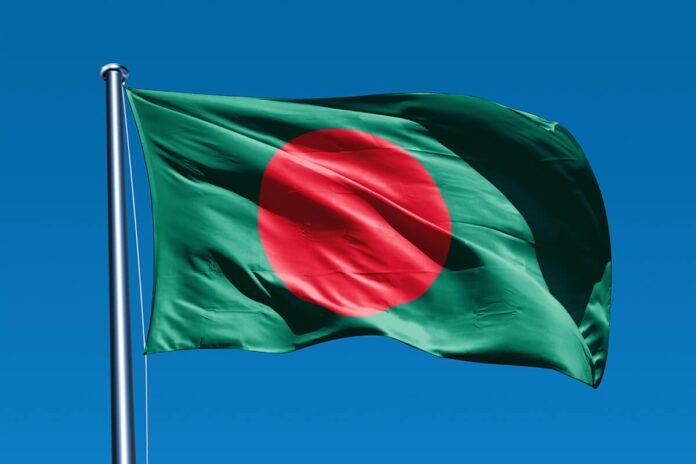All eyes currently remain firmly fixed on bitter events in Ukraine but there are rising fears that another huge country could be about to tear itself apart.
Bangladesh is set for potentially explosive parliamentary elections in late December, poll vital not just for the country’s own future but for the EU and wider international community.
The fear is that the outcome may result in yet further instability in a very large country, something that, with the Ukraine conflict rumbling on, is the last thing the West wants.
Victory for its pro-India and pro-West incumbent government is likely to see Bangladesh looking further Westwards in the coming years.
While less is known about exactly how the opposition would pivot itself in the event of victory, the feeling is that electoral success for the opposition Bangladesh Nationalist Party (BNP) could see Bangladesh lean more towards China and Russia.
The election is not until the end of the year but, already, there have been numerous demonstrations and violence in what is proving to be a tense pre-election period.
The violent unrest across this densely populated country – and fears of more disorder in the coming months – is one reason why the European Parliament last week decided to send a delegation from its foreign affairs committee to Bangladesh. The delegation met with representatives of the ruling Awami League party and urged the BNP opposition to reconsider its threat to boycott the election.
Elections must be held no later than 31 December and Bangladesh has a new Election Commission that is charged with administering free and fair elections. This, MEPs hope, could play a critical role in determining whether democracy will flourish or founder in Bangladesh.
Euro deputies and the EU have, in the meantime, also urged all parties to refrain from violence.
The United States says it is monitoring developments in Bangladesh “very, very closely” and a European parliament source told this site: “There are real fears about these elections and how Bangladesh will look after them. The big concern is that if the opposition party is successful this could see the country increasingly come under the influence of its large neighbours, Russia and China, leading to possible further instability.With a war in Ukraine showing no signs of abating, this kind of instability and disorder is the very last thing the West, including the EU or United States, needs at the current time.”
Bangladesh is a poverty-stricken country with a population of 165m and is vulnerable to flooding and cyclones.It has provided shelter to about one million Rohingya refugees who fled persecution in neighbouring Myanmar following a military crackdown against the Rohingya ethnic minority.
But the country’s $416 billion economy has been one of the fastest-growing in the world for years and the current Bangladeshi government, a coalition of centerist political parties led by Prime Minister Sheikh Hasina, is credited with achieving significant progress in various areas since coming to power. Key achievements range from economic and social development to digitalisation, with the aim of transforming Bangladesh into a digital economy.
Progress has been made also in the energy sector, with the aim of increasing access to electricity and reducing dependence on fossil fuels.
The current government has also made significant efforts to strengthen Bangladesh’s relationships with other countries.
The BNP is the country’s largest opposition party whose leader, Khaleda Zia, currently faces corruption charges and Obaidul Quader, Awami League General Secretary, is among its harshest critics, saying: “The BNP is not willing to participate in the general election because they (BNP leaders) know that the Awami League will come to power again under the leadership of Sheikh Hasina. So, BNP is resorting to ill tactics sensing defeat in the elections. It is destabilizing the country.”
The most recent violence occurred on Tuesday (7 March) when at least 15 people were killed and several others injured in an explosion in a crowded market area in Bangladesh’s capital Dhaka. On Sunday, three were killed in a suspected gas explosion in Dhaka. On Saturday, seven people were killed and several injured when a fire broke out following an explosion at an oxygen plant in southeastern Bangladesh.
PM Sheikh Hasina, who started a third term as prime minister in January 2014 after her Awami League won elections, has pledged that the December elections will be “credible, free and fair.”
She herself fallen victim to violence in Bangladesh that is currently such a concern for the EU and West with no less than 17 members of her family having been assassinated over the years.
She remains, however, firmly supportive of minorities and is strongly pro-India, an approach that has won her the support of the West.
A Brussels-based EU source told this site there is a consensus that for the good of regional stability and to avoid the possible emergence of “another Ukraine” it is deemed important to “maintain the status quo” in Bangladesh after the elections.
This is not to under-estimate, he noted, the current many serious problems facing the country which include attacks on freedom of the press, human rights abuses and widespread and violent civil unrest.
Last December, the United States called on the government of Bangladesh to fully investigate reports of violence against journalists and human rights activists.
“However,” the source added, “it is clearly not desirable for Bangladesh, another large country, to suffer the sort of violent instability we now see in Ukraine. The West really does not want to risk another Ukraine.”
“The international community also has genuine concerns that Bangladesh could pivot towards Russia – and China – if the current Opposition is successful in December’s elections.”
“Clearly, these elections are vitally important for the West, including the EU, as well as Bangladesh itself.”
Bangladesh’s democracy has an unusual feature. In its general elections, voters elect 300 members of its unicameral national parliament. Those 300 members in turn vote exclusively for women to fill the remaining fifty seats in parliament.
Formerly East Pakistan, Bangladesh came into being only in 1971, when the two parts of Pakistan split after a bitter war which drew in neighbouring India. Source: eureporter.co







